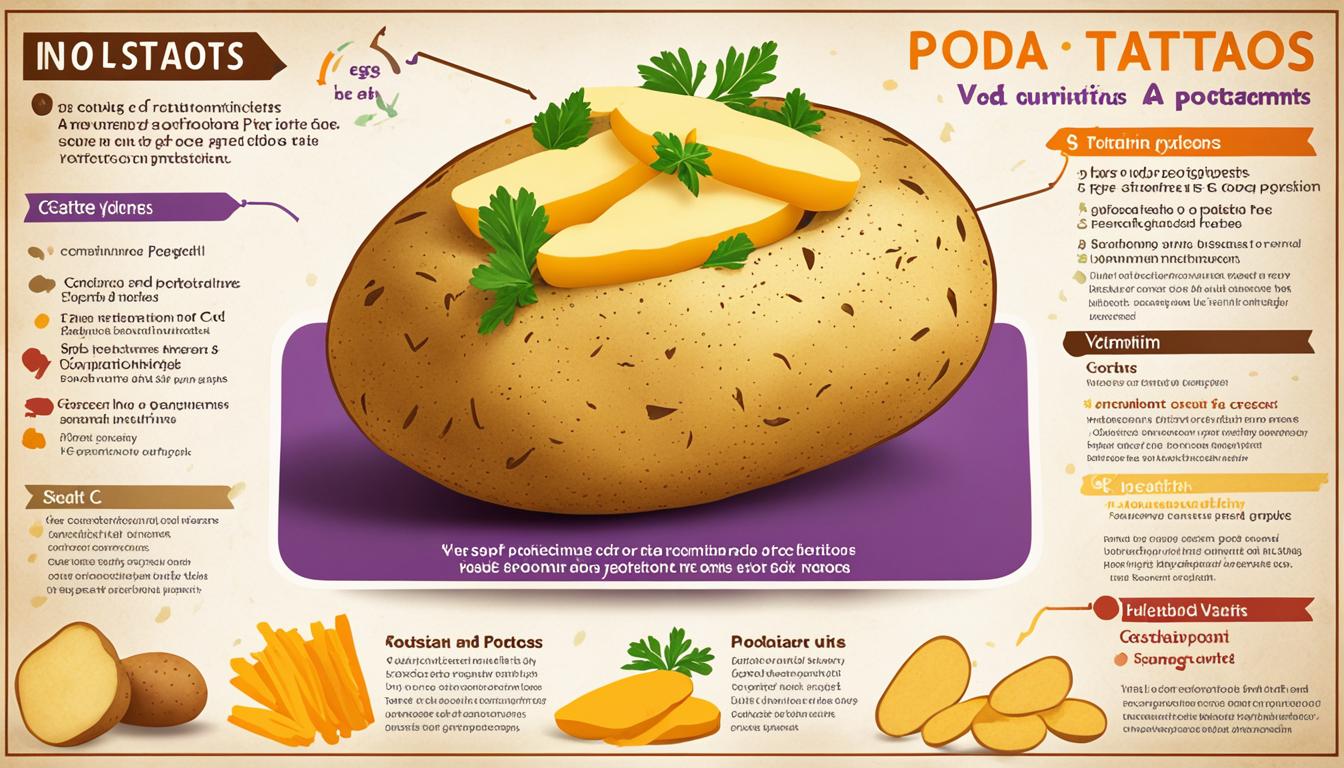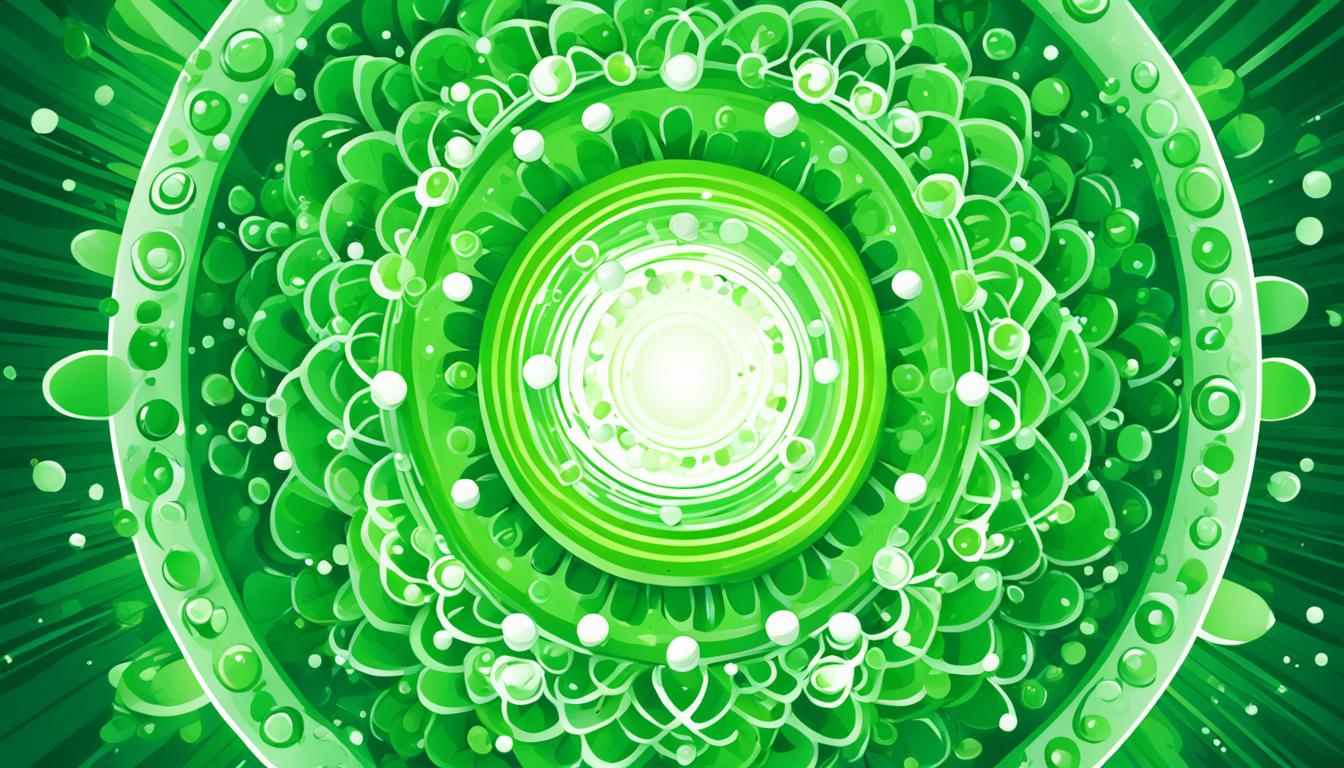A single cup of cooked pumpkin has 245% of your daily vitamin A needs. This fruit (often called a vegetable) is full of vital vitamins, minerals, and antioxidants. Pumpkin comes from the Cucurbitaceae family, is native to North America, and is well-known in autumn. It’s more than a tasty fall treat; it’s a superfood packed with health benefits.
Cooked pumpkin in a cup has only 49 calories but offers 2 grams of protein and 3 grams of fiber. It’s also rich in essential vitamins (A, C, E, and B-complex) and minerals like potassium, copper, and manganese. Thanks to its carotenoid antioxidants, such as beta-carotene, pumpkin might help lower cancer and heart disease risk.
Key Takeaways
- Pumpkin is a nutrient-dense superfood packed with essential vitamins, minerals, and antioxidants.
- One cup of cooked pumpkin contains only 49 calories, 2 grams of protein, and 3 grams of fiber.
- Pumpkin is an excellent source of vitamin A, providing 245% of the daily recommended intake.
- The antioxidants in pumpkin, such as beta-carotene, may help reduce the risk of chronic diseases like cancer and heart disease.
- Pumpkin’s versatility makes it a popular ingredient for both sweet and savory dishes.
Introduction to Pumpkin
Pumpkin is a winter squash from North America. It’s loved during Thanksgiving and Halloween. Even though it’s known as a vegetable, it’s really a fruit. It has seeds inside. Pumpkin is like a veggie in terms of nutrition.
What is Pumpkin?
Pumpkin is a big, round fruit with thick, orange skin and juicy, yellow-orange inside. It’s part of the gourd family. This includes butternut squash and acorn squash.
Types of Pumpkins
Many pumpkins come in different sizes, colors, and shapes. You might find standard orange pumpkins, “Cinderella” pumpkins, and white ones. There are also cushaws, naked-seeded sorts, minis, and pumpkins for making puree.
Pumpkin Nutrition Facts
One cup of cooked pumpkin has 49 calories. It also contains 2 grams of protein and 12 grams of carbs. Plus, it offers 3 grams of fiber. Pumpkin is low in calories and fat, making it a healthy choice.
Macronutrients in Pumpkin
Pumpkin is full of vitamins and minerals. It’s a top source of vitamin A, giving you 245% of your daily need. You’ll also get lots of vitamin C, E, and B vitamins. Minerals like potassium and copper, and manganese are in pumpkin too. This superfood is great for your health.
| Nutrient | Amount per Cup (245g) | % Daily Value |
|---|---|---|
| Calories | 49 | – |
| Protein | 2g | – |
| Carbohydrates | 12g | – |
| Fiber | 3g | – |
| Vitamin A | 245% DV | – |
| Vitamin C | 10% DV | – |
| Vitamin E | 22% DV | – |
| Potassium | 10% DV | – |
| Copper | 28% DV | – |
| Manganese | – | – |
Health Benefits of Pumpkin
Pumpkin is a powerhouse of nutrition. It’s packed with antioxidants, boosts your immune system, and helps your eyes. It’s a superfood that supports your health in many ways.
Rich in Antioxidants
Pumpkin shines with antioxidants like alpha- and beta-carotene. These antioxidants fight off free radicals. This helps prevent diseases like cancer and heart illness. Studies show eating foods with carotenoids lowers cancer risks.
Boosts Immunity
Pumpkin is rich in nutrients that make your immune system stronger. Vitamins A and C play a big role here. They help fight infections and improve white blood cell functions. Pumpkin also has vitamin E, iron, and folate, which support your immune system too.
Supports Eye Health
Vitamin A from pumpkin is great for your eyes. It also has lutein and zeaxanthin, known to reduce eye disease risks. The C and E vitamins, along with beta-carotene, protect your eyes as you grow older. They help prevent eye damage by free radicals for healthy vision.
Pumpkin and Cancer Prevention
Pumpkin contains carotenoids, acting as antioxidants. They can lower the risk of certain cancers. Alpha-carotene and beta-carotene are two types that are especially beneficial.
These antioxidants fight off harmful free radicals. This fight helps stop cancer from starting in the body.
In 2021, a study showed pumpkins have special compounds with anti-cancer effects. A 2014 study from South Africa included pumpkin among plants that help fight diabetes. This shows how pumpkins offer diverse health benefits.
Pumpkins are also packed with fiber. This fiber plays a role in preventing colon cancer. It keeps digestion on track and helps with weight loss and reducing blood pressure.
Heart Health Benefits of Pumpkin
Pumpkin is packed with potassium. This nutrient is key in lowering blood pressure and the risk of strokes. It also helps balance sodium in the body, crucial for keeping blood pressure healthy. Plus, pumpkin’s antioxidants fight against the natural oxidation of cholesterol. This reduces the chance of artery-clogging plaque and lowers the risk of heart disease.
Pumpkin’s high fiber, potassium, and antioxidants can change your cholesterol fate. Fiber lowers unhealthy LDL cholesterol, and antioxidants prevent its harmful oxidation. Together, these nutrients make pumpkin a true friend to your heart’s wellbeing and overall cardiovascular health.
| Nutrient | Amount in Pumpkin | Percentage of RDI |
|---|---|---|
| Vitamin A | 245 grams | 245% |
| Vitamin C | 19 grams | 19% |
| Potassium | 564 mg | 16% |
| Copper | 11 mg | 11% |
| Manganese | 11 mg | 11% |
| Vitamin B2 | 11 mg | 11% |
| Vitamin E | 10 mg | 10% |
Pumpkin for Skin Health
Pumpkin is great in recipes and for your skin. It’s packed with good stuff like beta-carotene. This makes it a natural sun protector when you eat it.
Protects from Sun Damage
The carotenoids in pumpkin, like beta-carotene, guard skin from UV damage. Pumpkin has a lot of vitamins C and E too. These, plus antioxidants like lutein and zeaxanthin, make your skin tougher against the sun.
Treats Skin Conditions
Pumpkin’s nutrients, like vitamin A and C, help with skin problems. For instance, pumpkin oil is good for eczema. Some studies say it works well fighting chronic hand eczema with less negative effects from the treatment.
Pumpkin Nutrition Facts: A Weight Loss Aid
Pumpkin is rich in vitamins, minerals, and antioxidants while being light on calories. At only 49 calories per cup, it’s perfect for weight watchers. Its high water and fiber content also keeps you feeling full, helping you eat less.
Low in Calories
Known for its low calorie count, pumpkin fits well into healthy eating plans. With just 49 calories a cup, it’s both fulfilling and full of nutrients. It’s an ideal choice for those watching their daily calories.
High in Fiber
Pumpkin is packed with fiber, offering 3 grams in every cup. Fiber aids digestion and helps keep your blood sugar stable. This duo of low calories and plenty of fiber makes pumpkin great for losing weight or staying trim.
Incorporating Pumpkin into Your Diet
Pumpkin is a versatile superfood. It can be used in many dishes. You can use fresh pumpkin or canned puree. Pumpkin adds nutrition and taste to your food.
Cooking with Fresh Pumpkin
Preparing fresh pumpkin requires removing the seeds and stringy parts first. Then, you can slice it into wedges or cubes. Though the skin is hard, its flesh can be roasted or puréed. Pumpkin seeds are tasty and healthy, perfect for snacking.
Pumpkin Recipes
Pumpkin is great for both sweet and savory dishes. You can make pumpkin pie, pumpkin soup, and pumpkin bread. Pumpkin pancakes, pumpkin smoothies, and roasted pumpkin are also favorites. Canned pumpkin puree works well too. Just make sure it doesn’t have added sugars or other stuff.
Precautions and Side Effects
Most people can eat pumpkin without worries. But those with kidney problems or who take certain drugs need to be careful. They should talk to a doctor first. Pumpkin is high in potassium.
Pumpkin seeds are very good for you. Yet, they might cause stomach problems for some because of their tough shells. If you have a sensitive stomach, choose shelled pumpkin seeds. They are easier to digest.
Be careful with raw pumpkin to avoid getting sick. Cooking it well is important. Food safety matters. If you’re pregnant or nursing, ask your doctor before eating pumpkin. There’s not enough info on its safety for these groups.
For most people, pumpkin is healthy and fine to eat. But everyone is different. Always consider your own health when changing your diet.
Conclusion
Pumpkin stands out as a highly nutritious and versatile fruit. It offers a variety of health benefits. Packed with essential vitamins, minerals, and antioxidants, it can support many parts of your body.
Adding pumpkin to your diet is easy, whether fresh, canned, or as seeds. It can help you stay healthier and reduce your chance of getting sick.
Pumpkin is easy to use in both sweet and savory dishes. From pumpkin pie to roasted pumpkin, there are many choices. Thanks to its low-calorie, high-fiber content, it aids in weight management.
In sum, pumpkin is more than just a tasty snack. It’s a nutritional powerhouse that fits into any diet. By using pumpkin, you’re taking steps towards better health and possibly avoiding diseases.
FAQ
What is pumpkin?
What are the different varieties of pumpkins?
What are the nutritional properties of pumpkin?
What are the health benefits of pumpkin?
How can pumpkin help with cancer prevention?
How does pumpkin benefit heart health?
How can pumpkin benefit skin health?
How can pumpkin aid in weight loss?
How can pumpkin be incorporated into a diet?
Are there any precautions or side effects to be aware of when consuming pumpkin?
Source Links
- https://www.webmd.com/diet/health-benefits-pumpkin
- https://www.medicalnewstoday.com/articles/279610
- https://www.healthline.com/nutrition/pumpkin-nutrition-review
- https://www.healthline.com/nutrition/pumpkin
- https://www.mayoclinichealthsystem.org/hometown-health/speaking-of-health/pumpkin-loaded-with-scary-good-nutrients
- https://www.nfcr.org/blog/cancer-fighting-food-pumpkin/
- https://www.ncbi.nlm.nih.gov/pmc/articles/PMC9182978/
- https://www.osfhealthcare.org/blog/9-reasons-to-add-pumpkin/
- https://www.bswhealth.com/blog/pumpkin-power-nutrient-rich-addition-to-your-diet
- https://www.webmd.com/vitamins/ai/ingredientmono-810/pumpkin
- https://www.verywellhealth.com/pumpkin-8426969
- https://www.americansportandfitness.com/blogs/fitness-blog/the-amazing-pumpkin-nutrition-facts
- https://www.everydayhealth.com/diet-nutrition/pumpkins-nutrition-benefits-recipes-side-effects-and-more/




